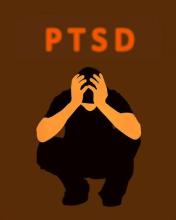Changes in feelings such as fear and anger are a normal part of life. Personal situations, such as a divorce, loss of a job, or strained relationships with family or friends can cause emotional stress, thus making a person feel sad or blue. These are not unusual reactions. However symptoms that last longer than 2-3 weeks require attention.
Mental health has been defined as:
- the successful performance of mental function, resulting in productive activities
- fulfilling relationships with other people
- the ability to adapt to change and cope with adversity or difficult life situations
Although different cultures have differing expectations for health, many of the following characteristics are likely to be present in individuals with good mental health:
- a sense of well-being and contentment
- self-confidence and self-esteem
- the ability to enjoy life, to laugh and have fun
- being able to deal with life’s stresses and bounce back from adversity with some resiliency
- the ability to change, grow, and experience a range of feelings, as life’s circumstances change
- the ability to care for oneself and for others

Suicide
Thoughts of death or suicide are usually signs of severe depression. It is believed that major life transitions (such as leaving home and family and peer supports to attend college — an unfamiliar environment with higher academic standards) may intensify present psychological distress or trigger new mental distress.
Eating Issues
Did you know?
- It is estimated that 25–31% of UM students engage in disordered eating behaviors
- 6% of people struggling with eating disorders will not survive.
- A dramatically increasing number of men suffer from eating disorders and body image issues.
- Early detection of disordered eating and body image issues greatly increase the success of treatment.
An Invisible Epidemic
Video: Coping with Stigma
If you or a loved one has a mental illness, you know that these words and gimmicks aren't just harmless fun. Rather, they perpetuate the stigma attached to mental illness. Stigma is painful and shaming, but you can both cope with it and combat it.
Note: These are actors portraying real student stories.
Alcohol & Drugs: Myths and Facts
The Impact of Alcohol Use-- FACTS and MYTHS
Bipolar
Did you know?
Bipolar disorder, also known as manic-depressive disorder, is a treatable brain disorder in which one may experience unusual shifts in mood, ranging from excessively “high”, happy and/or irritable to sad and hopeless. The periods of highs and lows are called episodes of mania and depression. Different from the normal ups and downs that everyone goes through, the symptoms of bipolar disorder are severe and can interupt school, work, personal relationships, basic daily functioning, and can impair quality of life.
Video: Coping with Bipolar
A friend of a person experiencing a mental illness, such as bipolar disorder, may encounter common difficulties. Although situations differ, there are basic suggestions to help to facilitate a smoother adjustment.
Note: These are actors portraying real student stories.
Video: Coping With Depression
Why am I so Bummed out? I can't get motivated! I don't care anymore! Sound familiar? Sometimes we need to regain control through hard work and commitment. Other times it may not be that easy
Note: These are actors portraying real student stories.
You can find valuable tips for managing depression by viewing videos from experts at the University of Michigan Depression Center.
ADHD
Looking Past the Stereotype
Body Dysmorphic Disorder
BDD is relatively common, frequently results in impairment in functioning, and is associated with high levels of perceived stress and suicide attempts.
General Information:
-Some research suggests that BDD may affect at least 1 in 200 people
-Treatment includes cognitive behavioral therapy and medication
Symptoms Include:
-Preoccupation with your physical appearance with extreme self-consciousness
-Frequent examination of yourself in the mirror, or the opposite, avoidance of mirrors altogether
Mental Health Screenings
Do you want to identify a mental health problem but don’t know where to start?
Do you have a friend or a loved one who is has a mental health concern and want to find out how to support them? See our Mental Health Topics index to search for your specific area of concern.
Depression
Did You Know?
Depression is more than feeling sad. It is normal to feel sadness or grief when a loved one dies, if you lose your job, you fail an exam, or a relationship ends. But sadness and depression are not the same. While feelings of sadness will decrease in time, depression can last for months or years without treatment. Depression is a long-lasting, often recurring illness that can have disabling effects on your mood, behavior, thinking, and health. It is not a “bad day” or a weakness in character.
Anxiety or Anxiety Disorder
What’s the difference between Normal Anxiety and an Anxiety Disorder?
Normal Anxiety: Occasional worry about circumstantial events, such as an exam or break-up, that may leave you upset
Anxiety Disorder: Constant, chronic and unsubstantiated worry that causes significant distress, disturbs your social life and interferes with classes and work
Anxiety
College Can Be Stressful!
And at times, it should be! Most of us experience feelings of anxiety. It can often occur right before coming back to school, leaving home for the first time, before an important event, job interview, exam, new social situation, or first date. Anxiety is a natural common human reaction and in moderation can actually be helpful.












